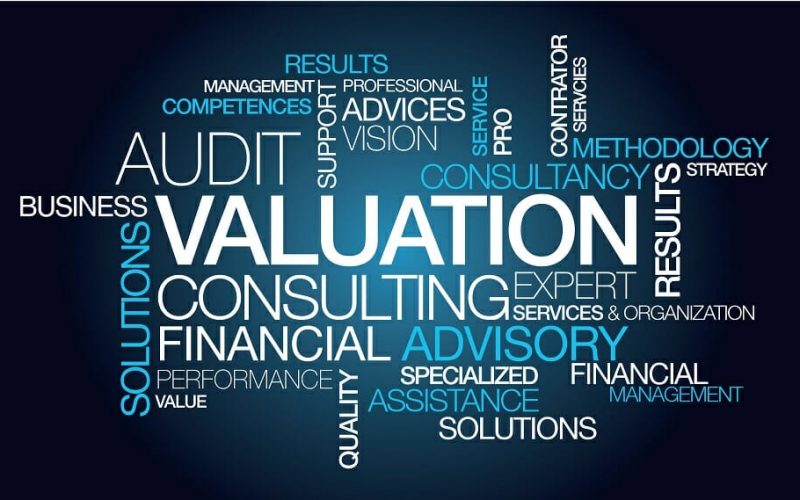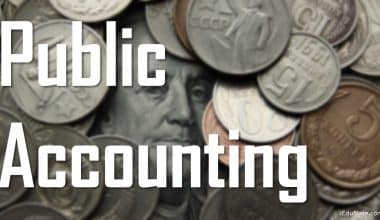Company valuations are the analytical process of determining an asset’s current (or predicted) value. A company’s valuations can be done using a variety of methods. When determining a company’s value, analysts consider the company’s management, capital structure, future earnings prospects, and market worth of its assets, among other factors. In this article, we’ll be discussing the company valuations, formula, and calculator.
You can determine a company’s value either on an absolute or relative basis in comparison to other similar companies/assets. There are a variety of methods and strategies for determining a value, each of which may yield a different result.
Definition of Company Valuations
Company valuations are the process of determining the economic value of a whole firm or company unit. For a variety of purposes, including sale value, establishing partner ownership, taxation, and even divorce proceedings. Company valuations can also be used to evaluate the fair value of a business.
There are several ways to value a company, including looking at its market size, earnings multipliers, or book value.
Company Valuations Fundamentals
Incorporate finance, the question of business value is regularly discussed. When a firm wants to sell all or part of its operations, combine with another company, or buy another company.
A review of the business’s management, capital structure, future earnings projections, or market worth of its assets could be included in a company’s valuation. Evaluators, firms, and sectors all utilize different tools for valuation. An examination of financial records discounted cash flow models, and similar company comparisons are all common techniques for Company valuations. Tax reporting requires valuation as well. Some tax-related activities, such as the sale, purchase, or donation of a company’s shares, will be taxed based on the company’s valuations.
Company Valuations Formula
There are various standard ways for calculating a company’s worth. Each one will most likely produce a different valuation when calculated, therefore a business owner who wants to sell should apply all three calculations before deciding on a price. The methods of company valuations are;
#1. Approach to the Market – Sales-Oriented
Compare the revenue of the company to the sale prices of similar companies that have previously sold. For example, a competitor with $3,000,000 in sales is bought for $1,500,000. This is a sales multiple of 0.5x. If the owner’s company makes $2 million in sales, the 0.5x multiple can be utilized to arrive at a market-based valuation of $1,000,000. However, there are several drawbacks to this strategy. First, the previously sold firm may have had significantly different cash flows or profits; or the acquirer may have paid a premium for the acquirer’s intellectual property or other valuable assets. As a result, this company valuation formula should only be used in the comparative firm that is very similar to the owner’s company.
#2. Profit-driven Approach to the Market
Compare the profitability of the company to the sale prices of similar companies that have previously sold. For instance, a rival makes $100,000 in profit and sells for $500,000. This is a profit multiplier of 5x. If the owner’s business makes $300,000 in earnings, the 5x multiple can be used to calculate a market-based valuation of $1,500,000. Profits, on the other hand, can be manipulated by aggressive accounting, thus it’s sometimes better to calculate a multiple of cash flows rather than profits.
#3. Approach to Earnings
Create a projection of the business’s predicted cash flows for at least the next five years, and then calculate their present value. This amount serves as the foundation for determining a sale price. A variety of changes to the predicted cash flows may also have a significant impact on the present value figure. For instance, the owner may have been paying himself more than the market rate, allowing the acquirer to replace him with a lower-cost manager, increasing the business’s present worth. Alternatively, the owner may not have been paying enough for discretionary goods like fixed asset replacements and maintenance, causing the predicted cash flows to be removed, resulting in a lower present value. These kinds of concerns might lead to a lot of haggling about a company’s value.
#4. Approach to Assets
Calculate the asset and liability market values for the company. Add the estimated worth of intangible assets created internally, such as product branding, customer lists, copyrights, and trademarks, to these figures. The total of these appraisals serves as the foundation for determining the business’s worth. While in many circumstances, the value of intangible assets outweighs the value of tangible assets, resulting in a lot of back and forth between the buyer and seller on the true value of these assets.
There is no ideal method for valuing something. Each contains flaws, thus the buyer and seller are likely to disagree on the entity’s true worth. In order to produce any value from an acquisition, the buyer will try to lower the valuation, but the seller has an incentive to be too optimistic when generating estimates and valuing assets.
Company Valuations Calculator
Company valuations are significant for a variety of reasons, including selling the business and using the revenues to fund your retirement or move on to another enterprise. Even if that isn’t your goal, you may need a business assessment to resolve legal concerns, IRS concerns, or shareholder disagreements. Company valuation is useful not only for tax purposes but also for obtaining cash and executing an employee stock ownership plan. As a business owner, you may just want to know how much your company is worth.
A company valuation calculator can be useful in this process, especially when determining if you can afford to buy a firm or whether the business is worth the asking price. You can, however, value your company using a variety of company valuations calculators. Here are some of the best free company valuation calculators you can start with online.
#1. EquityNet
EquityNet is one of the world’s major crowdfunding pioneers. The platform, which was founded in 2005, connects thousands of entrepreneurs with investors of all kinds and shapes and has already assisted start-ups all over the world in raising hundreds of millions of dollars in equity, debt, and royalty-based finance.
EquityNet also contributes to this aim by providing a company valuations calculator is based on real market data collected from over 3,000 enterprises across North America. This allows you to compare the worth of a company to that of potential competitors, which is something that many analysts ignore.
#2. CalcXML (Calculator XML)
CalcXML has been offering small businesses a variety of financial solutions for quite some time. The firm’s valuation calculator is also a tried-and-true model.
It’s a basic tool that gives potential purchasers a fast overview of the property. It considers all of the fundamentals, such as annual earnings, excess compensation, and the level of business risk. The best part is that it only takes a few minutes to complete.
#3. BizEx
BizEx hosts a platform based on the ‘Multiple of Earnings’ method, just like most other online valuation calculators. However, their company valuations calculator is significantly more advanced than the majority of the free models available on the internet.
You may construct immediate valuation ranges based on a variety of criteria by providing an in-depth breakdown of a company’s discretionary and multiple earnings. Following that, you have the option to discuss these figures with a broker if you so desire.
#4. American River Bank
The American River Bank uses the discounted cash flow method company valuations calculator to assess the worth of a company. This strategy is more relevant, according to the bank, because future operating circumstances and cash flows are uncertain or not forecast.
#5. Digital Exits
Finding the best accurate valuations calculator for your company entails sifting through a large amount of information. Digital Exits studied 82 distinct industries to provide a more realistic estimate of what you might anticipate earning based on your individual business.
The information provided by the company will help you gain a better knowledge of your firm’s position in the market.
#6. ExitAdviser
ExitAdviser is a free internet service that connects business owners with prospective buyers. ExitAdviser’s company valuations calculator, in line with that service, is designed to provide quick quotes to potential buyers.
Buyers just need to enter a company’s most recent fiscal year’s net profit and project its sales growth to get an estimate. However, there are other advanced input options available to aid in the generation of more accurate assessments.
It’s important to remember that this list is by no means exhaustive, just as no two values are comparable. There are a plethora of excellent valuation calculators available online that you can use to get an estimate of how much a company is worth. Always keep in mind that these free business valuation calculators aren’t always correct. At the end of the day, it’s up to you to do your homework to make sure you’ve made (or accepted) the best offer for an existing business.
Formula Company Valuations Calculator
There are various methods for valuing a company, and which one is the most reliable will rely on the company’s annual income as well as the amount of data accessible, among other things. Other methods, such as market-based and asset-based valuation approaches, may be considered in addition to the multiples of annual sales and profits that we’ve provided in our formula company valuations calculator.
- Multiple Formula for Annual Sales
- Annual sales x industry multiple = business valuation
- Multiple Formula for Seller’s Discretionary Earnings (SDE)
- (Annual earnings + owner’s salary) x industry multiple Equals SDE valuation
How Do You Calculate the Value of a Business?
Putting a Price on the Assets
An asset-based appraisal is an approach that does not necessitate the use of complex mathematics. The total value of your firm is calculated by adding the value of your assets and subtracting the value of your liabilities. You can take one of two approaches:
This strategy presupposes that your business will remain operational and that you will not be selling off big assets.
Liquidation is the process of getting rid of something. This method calculates the value of a company based on what you’d earn if you closed it, liquidated all of its assets, and paid off all of its debts. Because liquidation sales rarely bring market prices, this offers you a lowball assessment.
An asset-based valuation has the disadvantage that a good business is worth more than its equipment, real estate, inventory, and other assets.
Comps Valuation of a Company
Another way to determine a price is to compare one company to another that is similar. If you’re selling your company, for example, you can look for businesses in the same industry in your area and extrapolate your value from theirs.
One technique to get these “comps” is to hunt for businesses that have just sold and find out how much they sold for. Another option is to use a statistic like the price-to-earnings ratio if the data is available.
However, there are some drawbacks to using comps:
- It’s possible that you won’t be able to identify comparable deals.
- It’s possible that the sale data isn’t up to date and doesn’t reflect the current market value.
There aren’t many comps that are exactly the same. It can be difficult to figure out how to adapt the algorithm to account for major differences, such as one company’s older equipment or better-trained employees.
Valuation of Discounted Cash Flows
DCF (Discounted Cash Flow) is a far more efficient approach to determining a company’s worth. The DCF method of valuing a firm necessitates more number-crunching than asset appraisal. Considering how much cash a firm will create in the future, on the other hand, provides a considerably more accurate picture of the company’s true value.
The justification for basing the firm valuation on cash is because cash is ultimately what owners want and need. You can’t pay the bills, the landlord, or your employees if your company’s income is fantastic but your cash flow is negative.
How Do You Work Out DCF?
Make a forecast of your future earnings. You might use a simple growth estimate or take into account aspects like pricing, volume, competition, and the size of your consumer base. The second alternative necessitates a greater amount of effort.
Make a budget for both your expenditure and your capital assets. When combined with revenue, you can forecast your future cash flow.
Calculate the cash flow’s end value. What will the entire value of future cash flows be in five years, for example?
Finally, using established procedures, calculate the net present value using the terminal value. If the company’s cash flow generates $17.5 million in terminal value, you can’t use that money to pay payments right now. To determine the value of future money in the here and now, you discount the cash flow. This provides you a dollar figure to use as the company’s value.
The Price of a New Business
Another way, though less common, is to value a company by calculating how much it would cost to build an identical business from scratch. If you want to buy a manufacturing company, for example, you’ll need to figure out how much it will cost to acquire the equipment, lease the necessary space, acquire trucks, and hire a skilled team. This is one technique to assess the value of a well-established business.
The disadvantage of this method is that, like asset-based valuation, it ignores the company’s future earnings and cash flow.
Multiply the Profits
Revenue, like cash flow, is a measure of how much money the company will come in. The company’s value is calculated using the time’s revenue approach. The company’s value is calculated by multiplying current yearly revenues by a factor such as 0.5 or 1.3.
You are not allowed to choose your multiplier. They’re industry-specific, such as 2.56 for domestic products and 1.39 for food processing. The time’s revenue technique yields a value of $500,400 in the food-processing business but $921,600 in household products for a company with $360,000 in revenue.
Business analysts may employ the time’s revenue approach to place an upper limit on the company’s worth rather than using it alone.
Debt and Surplus
You may need to tweak a company’s valuation once you’ve calculated it. Most approaches ignore the amount of cash on hand or the overall amount of debt owed by the organization. You should consider this before deciding on final pricing.
Assume you wish to sell your company, and the discounted cash flow approach determines its net value to be $560,000. However, you owe a total of $200,000 in debts. If the company’s debts are included, the buyer may be unwilling to pay more than $360,000.
If you have more cash on hand than you need for urgent costs, you may wish to raise your business’s price to reflect the extra cash. Alternatively, you may figure out a way to keep the surplus and give the rest to the buyer.
Employ a Professional
You could be better off if you don’t go it alone when it comes to valuing a firm. Valuation is a specific skill set, even if you’re adept with finance and spreadsheets. A competent appraiser understands the proper multipliers to employ, recent comparables, market trends, and how to apply them to your specific firm.
Professionals, on the other hand, are objective. Having skin in the game can affect your judgment, whether you’re planning an exit strategy or preparing to buy your ideal firm. A cold-blooded professional evaluation can help you avoid making a mistake.
A reasonable estimate also helps to expedite the process. The appraiser understands how to price a business to sell in today’s market.
In Conclusion,
A company valuation analyst can assist sellers in obtaining the best possible price for their company while also ensuring that the price is based on solid data. The need for a business valuation specialist is determined by a variety of factors, including the size of the company, the complexity of its operations, and the industry and market factors that drive its growth.
FAQs
How do you determine the valuation of a company?
- Add up the worth of your assets. Calculate the total value of the company’s assets, including all equipment and inventory.
- It should be based on revenue
- Make use of earnings multiples.
- Perform a discounted cash flow analysis.
- Don’t limit yourself to financial calculations.
What are the three methods of valuation?
The three basic valuation approaches utilized by industry practitioners when valuing a firm as a continuing concern are (i) DCF analysis, (ii) similar company analysis, and (iii) precedent transactions. In investment banking, these are the most widely used valuation methods.
Which business valuation method is best?
The Discounted Cash Flow (DCF) approach is one of the best. It can be used to determine the value of your company based on projected earnings. You can also re-run the valuation for a number of different projections, each with its unique risk profile indicated by the appropriate discount rate.
How much do company valuations cost?
A company valuation can cost anywhere from $7,000 to more than $20,000, depending on the scope of the valuation. The majority of certified business appraisers provide a project fee estimate.






